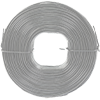دېكابىر . 05, 2024 08:50 Back to list
Advanced Cold Rolled Rebar Production Techniques for Enhanced Structural Performance
Exploring the World of Cold Rolled Rebar Factories
Cold rolled rebar, a critical component in the construction industry, is produced through a specialized manufacturing process that enhances its strength and durability. This innovative approach has made it increasingly popular among engineers and builders who seek to improve the structural integrity of their projects while optimizing costs. In this article, we will delve into the intricacies of cold rolled rebar factories, exploring their processes, benefits, and role in modern construction.
What is Cold Rolled Rebar?
Cold rolled rebar refers to steel reinforcement bars that have undergone a cold rolling process, which involves deforming the steel at room temperature to achieve the desired shape and mechanical properties. This process enhances the bar's yield strength, allowing it to better withstand tension and compression forces. Unlike hot rolled rebar, which is processed at high temperatures, cold rolled rebar undergoes significant strain hardening, resulting in a smoother surface finish and improved tensile strength.
The Manufacturing Process
The production of cold rolled rebar involves several key steps. Initially, high-quality steel billets are procured, which serve as the raw material. The process begins with the heating of these billets to a specific temperature, followed by hot rolling to achieve a rough shape.
After this basic shape is formed, the bars are allowed to cool before being fed into the cold rolling mill. In the cold rolling phase, the bars are further drawn and rolled without heating. This process not only refines the dimensions but also significantly improves the yield strength due to the strain hardening effect.
Once the cold rolling process is complete, the rebar undergoes a series of tests to ensure it meets the required standards for strength and quality. These tests may include tensile strength tests, bend tests, and surface quality inspections. Defective bars are removed, and the acceptable ones are prepared for packaging and distribution.
cold rolled rebar factory

Benefits of Cold Rolled Rebar
The advantages of using cold rolled rebar are manifold. One of the most significant benefits is its enhanced strength-to-weight ratio. This characteristic allows builders to use less material while achieving the same structural performance, ultimately reducing costs and weight on foundations.
Moreover, cold rolled rebar exhibits superior bonding properties with concrete. The increased surface roughness allows for better grip, which translates to improved structural performance. Additionally, its corrosion-resistant properties make it a suitable choice for use in harsh environments, extending the lifespan of construction projects.
Another vital aspect of cold rolled rebar is its versatility. It is available in various grades and sizes, making it suitable for a range of applications, from residential buildings to large-scale infrastructure projects. This adaptability ensures that builders can find exactly what they need for any specific construction requirement.
The Role of Cold Rolled Rebar in Sustainable Construction
As the construction industry moves toward more sustainable practices, cold rolled rebar has positioned itself as an eco-friendly choice. With its efficient use of materials and energy during production, it aligns with the goals of reducing the carbon footprint of construction activities. Furthermore, the longevity and durability of cold rolled rebar contribute to less frequent repairs or replacements, ultimately saving resources over time.
Conclusion
Cold rolled rebar factories represent a fascinating intersection of engineering innovation and practical application in construction. By leveraging the unique properties and advantages of cold rolled rebar, the industry is able to enhance structural integrity, reduce costs, and promote sustainability. As construction practices continue to evolve, the importance of cold rolled rebar is likely to grow, solidifying its place as a vital component in modern architecture and infrastructure development. The future of construction is bright, and cold rolled rebar will undoubtedly play a key role in shaping it.
-
Premium Welded Reinforcing Mesh SL62/SL72/SL82 High-Strength Solutions
NewsJun.01,2025
-
Diamond Mesh Expanded Sheet Factories Durable & High-Strength Design
NewsJun.01,2025
-
REO Mesh Solutions High-Quality Manufacturers & Trusted Suppliers
NewsJun.01,2025
-
SL72 Reinforcing Fabric Factories & Suppliers High-Strength Material
NewsMay.31,2025
-
Electro Galvanized Wire Low Price Durable & Affordable Suppliers
NewsMay.31,2025
-
Steel Driveway Grates Grating - Heavy-Duty & Custom Sizes
NewsMay.31,2025

